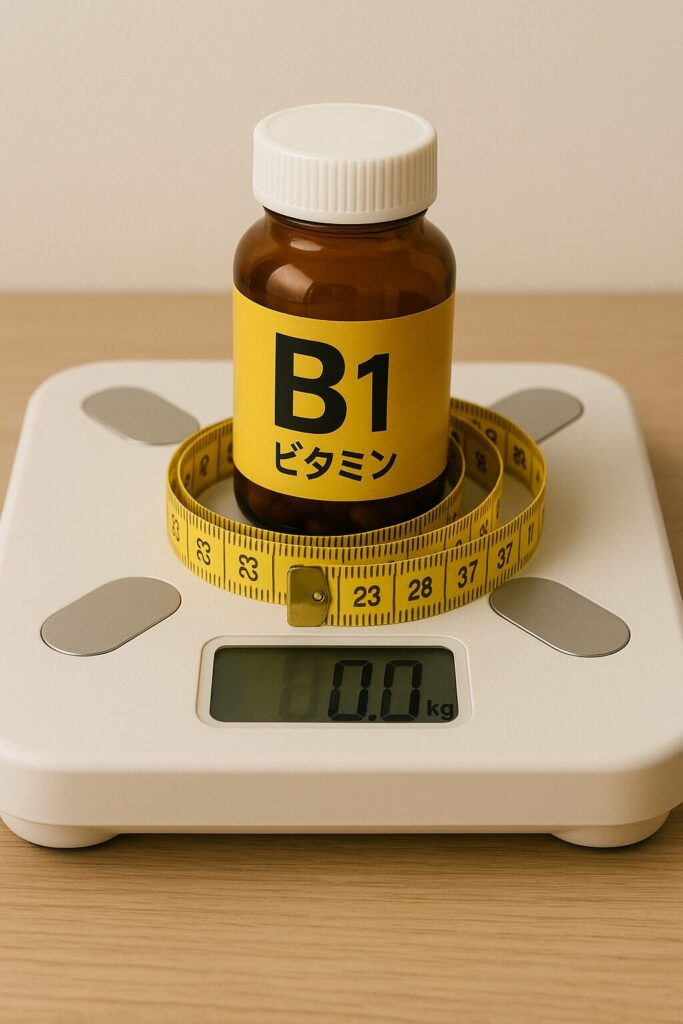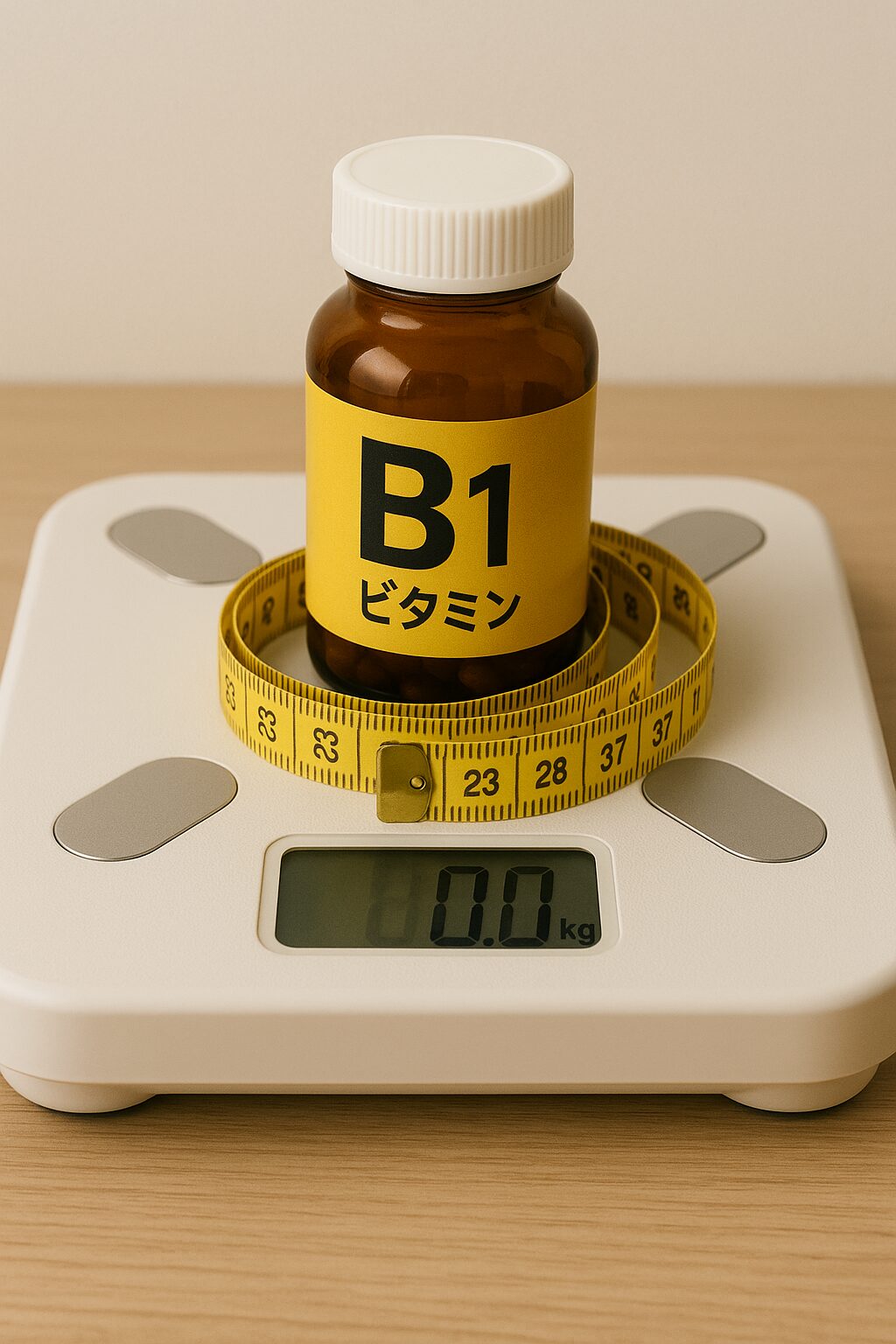Many people focus on protein, low carbs, or calorie counting when starting a diet. However, an often-overlooked nutrient that plays a critical role in energy metabolism is Vitamin B1 (Thiamine). Without enough Vitamin B1, the body struggles to convert food into usable energy, which can lead to fatigue, poor concentration, and slower progress during weight loss. This article explores why Vitamin B1 is essential during dieting, the symptoms of deficiency, food sources, and safe supplementation tips.

1. The Role of Vitamin B1 in Energy Metabolism
Thiamine acts as a coenzyme in carbohydrate metabolism, meaning it helps the body break down glucose and turn it into energy. When dieting, especially on reduced-calorie plans, efficient energy conversion becomes even more important. Without enough Vitamin B1, you may feel sluggish, experience low stamina, or struggle to maintain motivation for exercise.
2. Why Deficiency Can Happen During Dieting
Restrictive diets, fad cleanses, or meal skipping can reduce your intake of essential nutrients, including Vitamin B1. People who rely mainly on refined foods (like white rice, white bread, or processed snacks) are at higher risk because these lack thiamine. Additionally, heavy coffee or alcohol consumption can interfere with thiamine absorption, further increasing the chance of deficiency during weight loss efforts.
3. Common Symptoms of Vitamin B1 Deficiency
Even mild thiamine deficiency can cause noticeable effects, such as:
- Persistent fatigue and weakness
- Difficulty focusing or memory issues
- Irritability or low mood
- Numbness or tingling in hands and feet
- Slow recovery after exercise
In more severe cases, deficiency can lead to beriberi, a condition that affects the cardiovascular and nervous systems. While rare in developed countries, strict dieting without nutrient balance may increase vulnerability.
4. Best Food Sources of Vitamin B1
Incorporating Vitamin B1-rich foods into a weight-loss diet is simple and beneficial. Key options include:
- Pork: One of the richest sources of thiamine, especially lean cuts.
- Whole grains: Brown rice, oats, and quinoa contain more thiamine compared to refined grains.
- Legumes: Beans, lentils, and peas are plant-based sources suitable for vegetarians.
- Nuts and seeds: Sunflower seeds, flaxseeds, and macadamia nuts provide thiamine with healthy fats.
- Eggs and dairy: Good for balanced diets that include animal products.
By mixing these foods, you can maintain energy levels and support metabolism even during calorie restriction.
5. Supplementation: Should You Take Extra Vitamin B1?
Some dieters choose supplements if their intake is low. While Vitamin B1 supplements are generally considered safe, high doses may not provide extra benefits unless deficiency exists. Most experts recommend a “food-first” approach — prioritizing nutrient-dense meals. If you’re considering supplementation, consult a healthcare provider, especially if you have medical conditions or take regular medication.
6. Practical Tips for Dieters
Here are simple strategies to maintain adequate Vitamin B1 intake while dieting:
- Choose whole grains instead of refined grains whenever possible.
- Add lean pork or legumes to meals for sustainable energy.
- Snack on nuts or seeds to balance nutrient intake.
- Avoid excessive alcohol, which depletes thiamine stores.
- Plan meals ahead to ensure nutrient diversity.
By making small adjustments, you can prevent deficiency and improve your overall success in weight management.
🙂
Dieting is not only about cutting calories — it’s about maintaining energy, mood, and overall well-being. Vitamin B1 may not get as much attention as protein or fiber, but it plays a quiet yet vital role in keeping your metabolism running efficiently. By focusing on whole foods, balanced meals, and mindful supplementation when needed, you can support both your health and your weight-loss journey in a sustainable way.
Sources
– National Institutes of Health (NIH): Vitamin B1 (Thiamine) Fact Sheet
– World Health Organization (WHO): Micronutrient Needs
– Academy of Nutrition and Dietetics: Role of Thiamine in Energy Metabolism
Disclaimer
This content is for informational purposes only and does not replace medical advice. Individual needs may vary. Please consult a qualified healthcare professional before making significant dietary or supplement changes.
